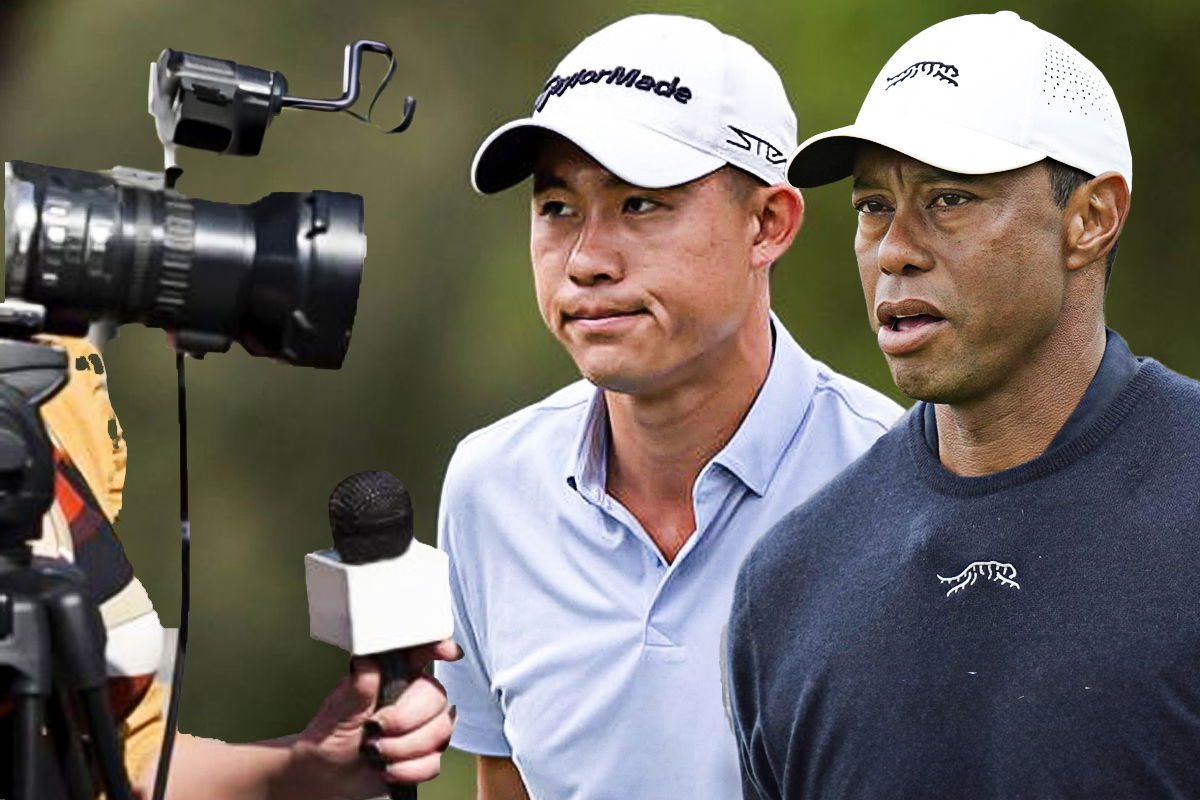
Imago
Image Credits: IMAGO

Imago
Image Credits: IMAGO
You know that feeling when someone twists your words? That sinking sensation when your innocent comment becomes tomorrow’s controversial headline? Professional golfers live this nightmare daily. Unlike athletes in other major sports who can rely on team PR departments and social media to control their narratives, golf remains uniquely dependent on traditional media coverage. Every quote matters more because golf journalists still drive the conversation around tournaments and player personalities.
Watch What’s Trending Now!
Collin Morikawa discovered this reality firsthand at the recent Rocket Classic. When reporter Adam Schupak approached him on the first tee about his latest caddie change, Morikawa politely deferred to his upcoming press conference. That simple response—“Ask me anything you want in my press conference later. I’m with my pro-am partners now,”—ended up in print and sparked his visible frustration later.
This interaction revealed what’s happening across professional golf today. Players grow increasingly wary of how their words get interpreted, while media members navigate impossible pressures in a click-driven economy. The responses we got from fans in ES’ flagship golf newsletter, ‘Essentially Golf,’ tell the same story. But before we dive into the fan reactions, let’s trace how we got here.
ADVERTISEMENT
Top Stories
Tiger Woods Told to Seek Bryson DeChambeau’s Help as $500M Golf Project Hits a Rough Patch
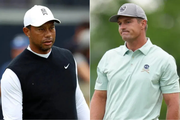
Patrick Reed Pays a Heavy Price for Exiting LIV Golf as Worrying Update Surfaces
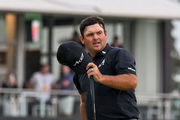
Dustin Johnson’s New Partner Mocks Patrick Reed as LIV Golf Decision Puts Them in Tough Spot
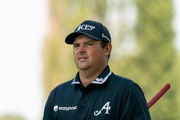
PGA Tour Champ Disqualified for Using Banned Item at Farmers Insurance Open

ESPN Commentator Sparks Uproar With Brooks Koepka Shade During Torrey Pines Event
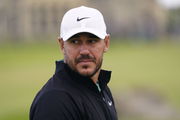
What Led PGA Tour Players to Media Tensions?
The current standoff didn’t emerge overnight. It developed gradually over decades of media interactions gone wrong, creating a blueprint for how words can become weapons in professional golf.
Tiger Woods pioneered the modern version of this dynamic during his multiple swing reconstructions. Every time he mentioned his technique being “close,” headlines transformed his optimistic assessments into excuse-making narratives. Media outlets consistently framed his honest progress reports as denial rather than determination. Headlines like “Tiger Woods’ Swing Coach Says Criticism Is ‘Out Of Hand'” and “Tiger comes clean but still gets it wrong” turned his measured comments into stories of a fading champion making excuses for poor performance.
ADVERTISEMENT

Getty
ABU DHABI, UNITED ARAB EMIRATES – NOVEMBER 06: Rory McIlroy of Northern Ireland speaks in a press conference following the Pro-Am prior to the Abu Dhabi HSBC Championship 2024 at Yas Links Golf Course on November 06, 2024 in Abu Dhabi, United Arab Emirates. (Photo by Richard Heathcote/Getty Images)
The pattern intensified with Rory McIlroy during golf’s civil war with LIV. After spending 18 months as the PGA Tour’s unofficial spokesperson, fighting against Saudi-backed golf, he watched his organization flip completely. The merger announcement left him feeling betrayed and exposed. “It’s hard for me to not sit up here and feel somewhat like a sacrificial lamb,” McIlroy said at the 2023 Canadian Open. His emotional honesty got clipped into viral soundbites, with fans focusing on his apparent contradiction rather than understanding his complex position.
ADVERTISEMENT
Padraig Harrington found himself caught in a similar crossfire despite his reputation for thoughtful interviews. His nuanced critiques about the disconnect between modern golf instruction and traditional skills got reduced to “boomer-speak” on social media platforms. Fans dismissed his observations about elite coaching versus recreational golf as outdated complaints from an aging veteran who couldn’t adapt to the sport’s evolution.
Now Morikawa represents the latest evolution of this pattern. His recent confrontations stem from feeling misrepresented rather than misquoted. The press conference room at the Rocket Classic fell uncomfortably silent as he confronted Schupak directly. “I don’t get why you would make me sound bad,” he said, his eyes rolling slightly. The tension was palpable as he continued, “I have to stand up for myself because I’m not going to let someone throw little jabs at me.”
ADVERTISEMENT
Essentially Golf poll results: Do pro golfers act too pampered?
These mounting tensions prompted us to gauge fan sentiment directly. In last Thursday’s edition of “Essentially Golf,” we ran a poll asking, “Do You Think Pro Golfers Today Act a Little Too Pampered?” The responses were overwhelmingly critical, with fans expressing frustration about modern players’ attitudes toward media obligations.
But the economics behind these tensions run deeper than most fans realize. Golf’s unique, sponsor-dependent ecosystem makes media coverage exponentially more valuable than that of other sports. Players’ endorsement deals often include specific media appearance clauses, meaning skipping pressers can cost them money. The rise of signature events with smaller fields creates fewer opportunities for players to build their brands through traditional coverage.
Meanwhile, a generational shift complicates matters further. Younger players, such as Morikawa, Scottie Scheffler, and Ludvig Aberg, grew up with direct-to-fan communication via social media. They view traditional media as an unnecessary middleman, unlike veterans who understand its value. Player agencies, such as CAA and Wasserman, now actively shape media strategies, sometimes advising clients to limit their exposure rather than embrace it.
ADVERTISEMENT
The media side faces its pressures. Journalists need headlines and engagement in a click-first economy. Press conferences represent public forums where anything said becomes fair game. Sometimes golfers backtrack not because they were misquoted, but because public reaction burns more than they expected.
The crucial distinction matters enormously. Are players reacting to being misquoted, or to the consequences of being quoted accurately but without full context? What seems like a “media twist” might be an “audience misread” of perfectly accurate reporting.
ADVERTISEMENT
“They have everything handed to them. This generation is SOFT.”
Fan reactions revealed this complexity perfectly. “They have everything handed to them. This generation is SOFT. They’re hyper-sensitive and self-entitled,” wrote one frustrated fan. Another added bluntly, “They are among the most pampered sports figures in the world… Prima Donna’s all.”
The criticism intensified when fans discussed specific players. “They are entitled and put on a pedestal… a lot cry like little babies,” commented one respondent. The harshest assessment came from a fan who didn’t mince words: “Morikawa is a pampered jerk who, as he said, ‘doesn’t owe anybody anything.’ He should try to be more humble.”

Getty
PEBBLE BEACH, CALIFORNIA – FEBRUARY 01: Collin Morikawa of the United States acknowledges the crowd on the 18th green during the third round of the AT&T Pebble Beach Pro-Am 2025 at Pebble Beach Golf Links on February 01, 2025 in Pebble Beach, California. (Photo by Ezra Shaw/Getty Images)
Critics like Rocco Mediate took especially harsh stances against players who skip media obligations. He called Morikawa’s explanation “the biggest bunch of horsesht you could ever say”* and labeled it “selfish garbage.” Golf analysts Brandel Chamblee and Paul McGinley similarly questioned whether this generation serves the game’s best interests.
ADVERTISEMENT
“Maybe reporters are too pampered… Your article headline was just plain clickbait.”
However, some fans defended the players’ positions. “Maybe reporters are too pampered… Your article headline was just plain click bait and irresponsible reporting,” wrote one reader who felt journalists deserved equal criticism. Another supporter argued, “Smart arse reporters need to be banned from a presser. They think the golfers owe them.”
ADVERTISEMENT
The comparison between Morikawa and McIlroy has become particularly pointed among fans. Social media users frequently comment that these players seem increasingly difficult to relate to, with some suggesting both golfers have become tone-deaf to public sentiment.
McIlroy’s evolution from PGA Tour defender to someone telling critics to “get over it” mirrors a broader pattern among elite players. Recently, his stance changed completely, telling reporters “If people are butt hurt or have their feelings hurt because guys went or whatever, like who cares?” The shift reflects how players increasingly view media obligations as burdens rather than opportunities.
“This generation needs better media training.”
Others took a more measured approach, suggesting systemic solutions rather than assigning blame. “This generation needs better media training,” wrote one thoughtful respondent. The sentiment reflects a growing recognition that both sides bear responsibility for improving these relationships.
Golf finds itself caught between tradition and the realities of modern media. Should golfers invest more in media training that prepares them for how their words might be interpreted in today’s instant-reaction environment? Should the press dial back sensationalism in favor of more nuanced coverage that serves golf’s long-term interests? Or is this simply the cost of doing business in 2025, where every word gets amplified and dissected across multiple platforms?
ADVERTISEMENT
ADVERTISEMENT
ADVERTISEMENT
